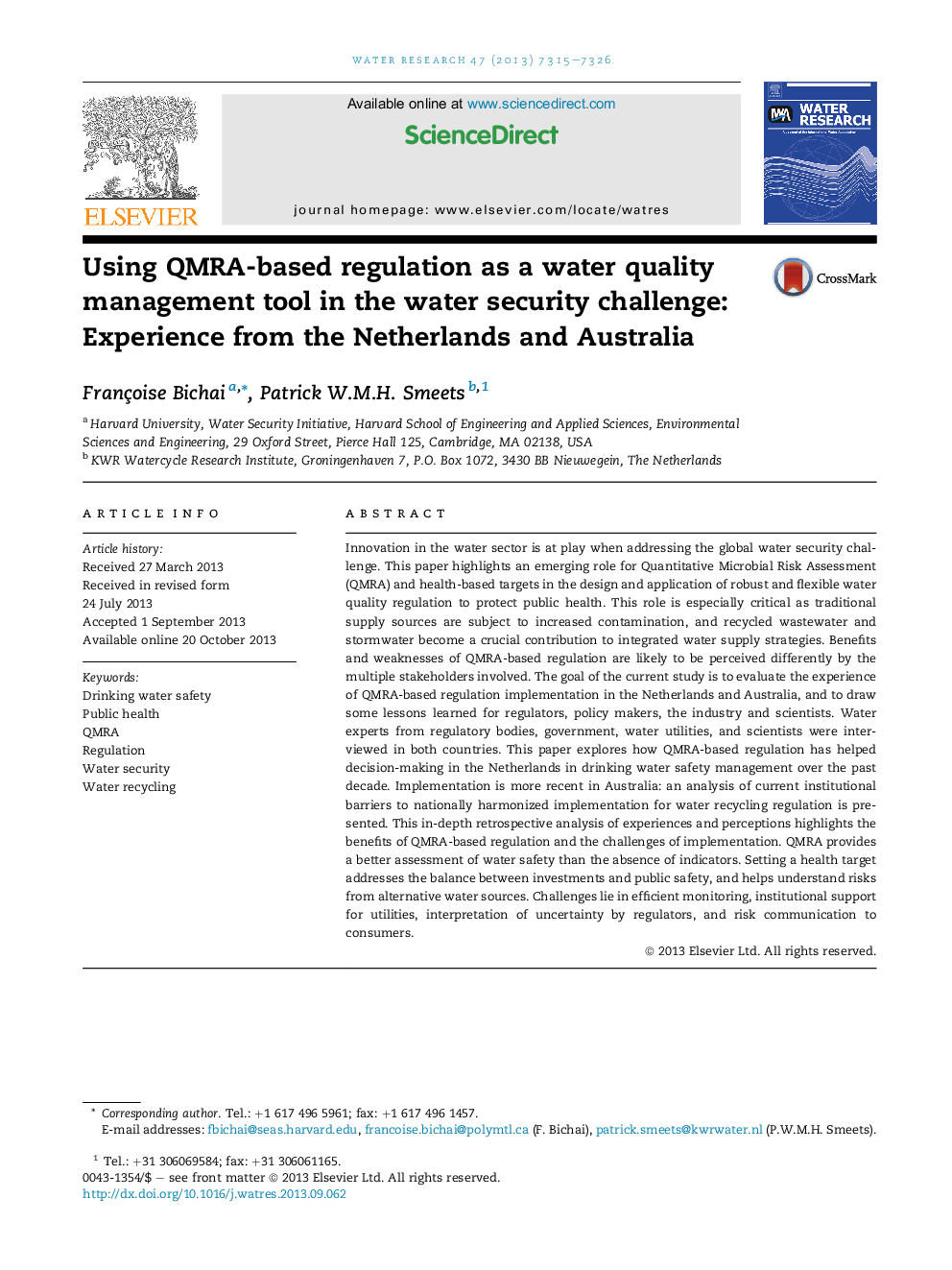| کد مقاله | کد نشریه | سال انتشار | مقاله انگلیسی | نسخه تمام متن |
|---|---|---|---|---|
| 6367130 | 1316831 | 2013 | 12 صفحه PDF | دانلود رایگان |

- QMRA has an emerging role to play in guiding water supply innovation and safety.
- Dutch experience shows that science gaps don't compromise the added-value of QMRA.
- QMRA regulation helps enforce cost-effective decisions to protect water safety.
- Flexibility of regulator and institutional support are needed for implementation.
- Knowledge-sharing and an adapted QMRA approach for small systems are needed.
Innovation in the water sector is at play when addressing the global water security challenge. This paper highlights an emerging role for Quantitative Microbial Risk Assessment (QMRA) and health-based targets in the design and application of robust and flexible water quality regulation to protect public health. This role is especially critical as traditional supply sources are subject to increased contamination, and recycled wastewater and stormwater become a crucial contribution to integrated water supply strategies. Benefits and weaknesses of QMRA-based regulation are likely to be perceived differently by the multiple stakeholders involved. The goal of the current study is to evaluate the experience of QMRA-based regulation implementation in the Netherlands and Australia, and to draw some lessons learned for regulators, policy makers, the industry and scientists. Water experts from regulatory bodies, government, water utilities, and scientists were interviewed in both countries. This paper explores how QMRA-based regulation has helped decision-making in the Netherlands in drinking water safety management over the past decade. Implementation is more recent in Australia: an analysis of current institutional barriers to nationally harmonized implementation for water recycling regulation is presented. This in-depth retrospective analysis of experiences and perceptions highlights the benefits of QMRA-based regulation and the challenges of implementation. QMRA provides a better assessment of water safety than the absence of indicators. Setting a health target addresses the balance between investments and public safety, and helps understand risks from alternative water sources. Challenges lie in efficient monitoring, institutional support for utilities, interpretation of uncertainty by regulators, and risk communication to consumers.
107
Journal: Water Research - Volume 47, Issue 20, 15 December 2013, Pages 7315-7326